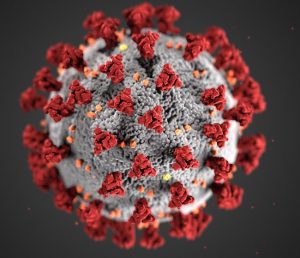One of the first studies of long COVID has been retracted and replaced seven months after editors marked it with an expression of concern citing “data errors.”
The original paper, “6-month consequences of COVID-19 in patients discharged from hospital: a cohort study,” was published in The Lancet in January 2021. It was “the first large cohort study with 6-months’ follow-up” of people hospitalized with COVID-19, according to an editorial published simultaneously, and has been cited more than 2,000 times, according to Clarivate’s Web of Science. The World Health Organization, for example, cited it in several documents.
Last November, the article received an expression of concern stating that a researcher had contacted the journal about inconsistencies between that study and a paper published in August 2021, also in The Lancet, describing the same cohort of patients after one year of follow up.
“In view of the extent of these data errors,” the notice stated, the journal editors issued the expression of concern while they conducted a review of corrected data the paper’s authors had submitted.
Following the expression of concern, the work was cited by some 400 other papers.
After their investigation, the editors decided to retract the article and replace it with a corrected version, according to a notice about the action published June 9.
The retraction and replacement notice describes the steps the journal editors took in their investigation, which involved statistical review of the data changes the authors requested, a clinician’s review of the differences between the 6-month and 1-year follow-up questionnaires, review of the Chinese versions of the questionnaires by The Lancet’s China editors, and asking the China-Japan Friendship Hospital, with which corresponding author Bin Cao is affiliated, to verify the corrected data. All aspects of the investigation turned out in favor of the authors. The notice stated:
Given these results, we invited a resubmission with the corrected data, and organised formal peer review of the fully revised paper with the corrected data by all the previous clinical reviewers and the statistical reviewer.
Cao, who has been described as “a leading researcher in pneumonia and influenza” who “has been instrumental in increasing knowledge about COVID-19,” did not immediately respond to our request for comment. [See update at end of post.]
Last year, The Lancet’s impact factor surpassed that of the New England Journal of Medicine, long the top-ranked medical journal, in large part due to the papers it published about COVID-19, five of which have been retracted. One of those articles was retracted after sleuths questioned whether its data were real, and the company that sourced the data, Surgisphere, would not produce it for review.
Update, 6/14/23, 0000 UTC: Cao tells us:
I really appreciate the comments from a reader about data and symptom questionnaire inconsistencies between 6-month and 1-year outcomes in hospital survivors with COVID-19. The comments help us reanalysis of both database and find the errors at last. Though the changes did not make difference of the conclusions, I replied the reader with great appreciation and emailed editor of the Lancet. When The Lancet published an Expression of Concern on Nov 24, 2022, I got much pressure from media, because the media guess the Concern means retraction. But as a physician scientist, I understand thevalidity of data is more important. We followed the gudieline of the Lancet to re-peer review all the data and questionnaire, even though we did not know whether we could republish the paper or not. The re-peer review is a long journey for me.
Now the readers who are interested in Long COVID can read the confirmed and corrected data from 6-month consequeces of COVID-19 patients discharged from hospital. This cohort is unique because these patiens are those infected with original SARS-CoV-2 stran at the beginning of the pandemic. My colleagues and I are following these patients now and try to answer the question of long covid.
Like Retraction Watch? You can make a tax-deductible contribution to support our work, follow us on Twitter, like us on Facebook, add us to your RSS reader, or subscribe to our daily digest. If you find a retraction that’s not in our database, you can let us know here. For comments or feedback, email us at [email protected].

Have you any information re the second study and why it has not been republished?